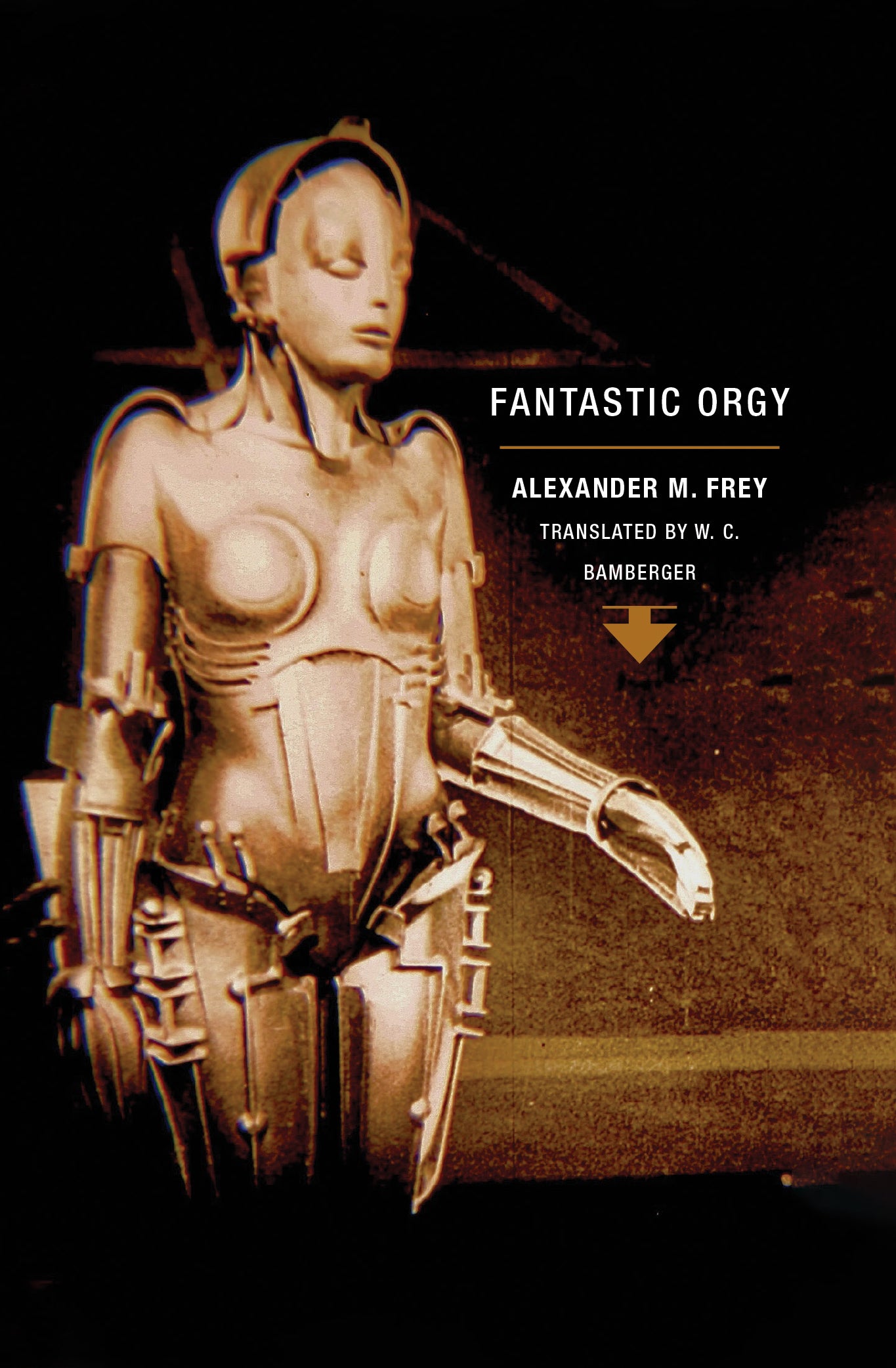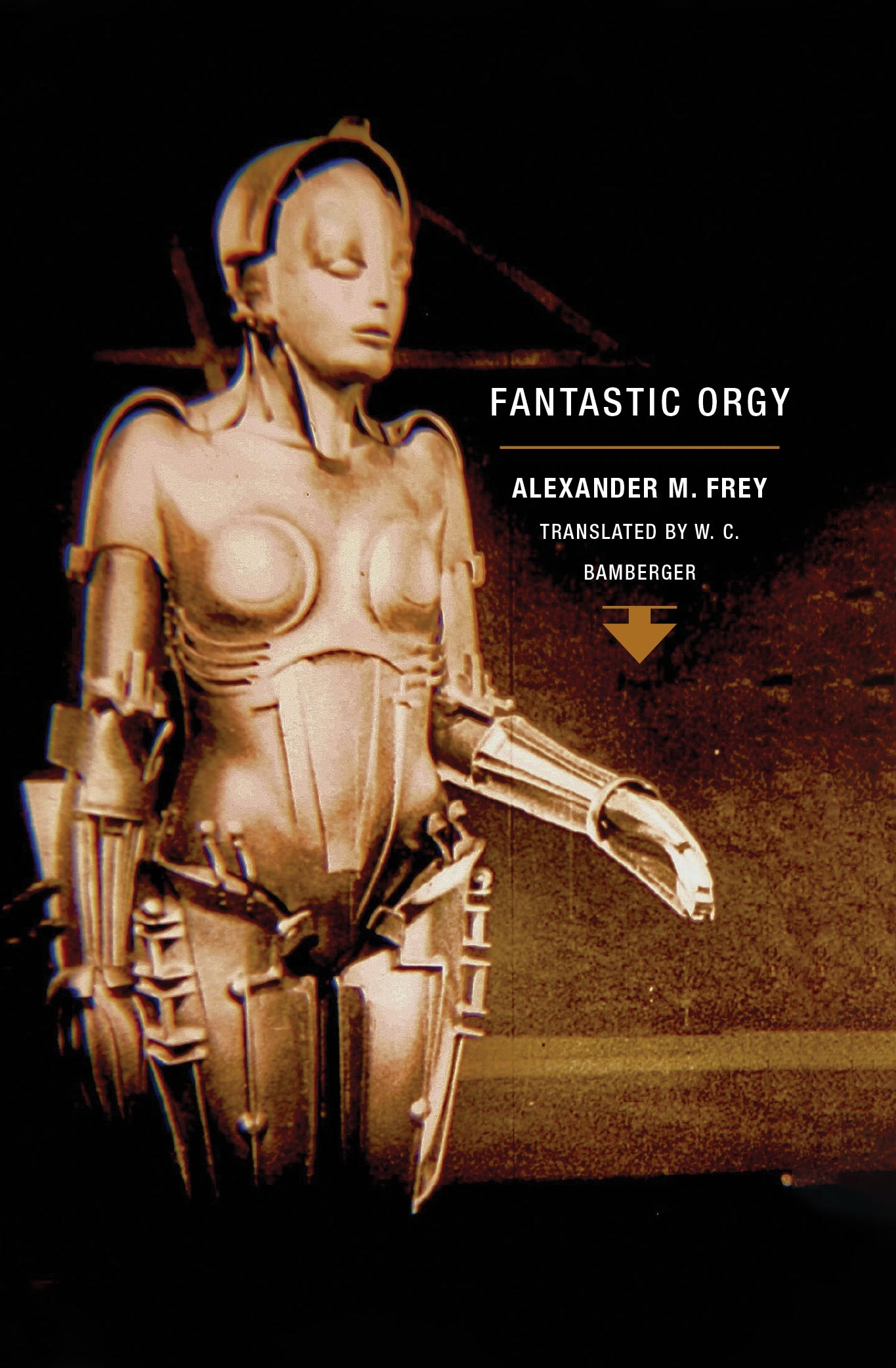Fantastic Orgy
Fantastic Orgy
Alexander M. Frey
Couldn't load pickup availability
Translated, with an introduction, by W. C. Bamberger / July 2025 / 4.5 x 7, 80 pp. / 978-1-939663-94-8
Phantomata, gentlemen, human or machine, female riddle for all scholars of civilized lands. A highly honored audience will see for themselves that they do not know what she is. What might she be—the greatest miracle of hypnosis, or the mechanical masterpiece of all time?
Four tales of grotesque empathy from the Weimar Republic that include all the ingredients endemic to that period: maimed beggars, female automatons, cultural prosthetics, and the spiderweb of thin lines separating everyone from opulent decadence and dire poverty.
First published in 1924, Fantastic Orgy is most notable for its title story, an account of a drinking rout organized for maimed beggars in honor of a sideshow attraction: a mechanical woman doomed to early death through weardown from entertaining the masses—a depiction of a robotic woman preceding Fritz Lang’s less sympathetic presentation in Metropolis by several years.
All four stories explore the emotional and material needs of a crippled society: the sociological, economic, and moral trap of poverty, and the hypocritical righteousness of charity. Like an etching by Georg Grosz or Otto Dix translated into literary form, Alexander Frey presents the troubling, at times fantastical notion of a prosthetic humanity for damaged times.
Alexander M. Frey (1881–1957) was a German author whose antiwar novel Die Pflasterkästen (published in English as The Cross Bearers) is considered by some critics to be superior to Erich Maria Remarque’s All Quiet on the Western Front. A lifelong friend of Thomas Mann, Frey refused to join the National Socialist Party, despite having served as a medic in the trenches of World War I alongside dispatcher Adolf Hitler, and would later need to escape Germany into exile as his books were burned by the Nazis. He spent the last twenty years of his life in Switzerland, though without being granted legal status until a few days before his death.


